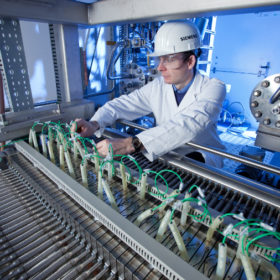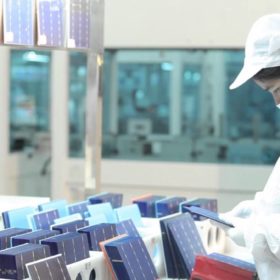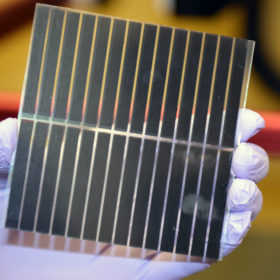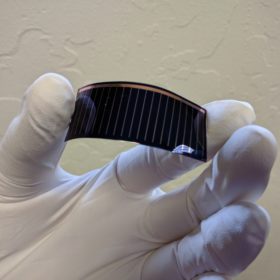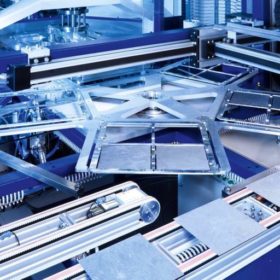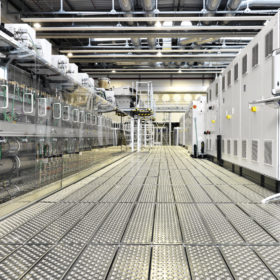Report calls on UK Government to embrace power to gas
A new report published by the Institution of Mechanical Engineers outlines the potential for power to gas as a technology to support the addition of renewable energy capacity to the grid, and as a storage alternative with advantages over much talked about lithium-ion technology.
JinkoSolar achieves 23.95% efficiency for p-type mono cell
Chinese module manufacturing heavyweight JinkoSolar has announced the achievement of a new world record efficiency for a p-type monocrystalline silicon cell, at 23.95%. The record has been confirmed in testing by the Chinese Academy of Sciences.
Mongolia’s largest PV power plant financed by EBRD & partners
The European Bank for Reconstruction and Development (EBRD) and investment partners will provide a $30.7 million syndicated loan to finance a 30 MW power plant, which EBRD says will be the first large-scale solar installation built in Mongolia.
China’s Sunpower Group picks up $12.5 million polysilicon equipment order
Chinese integrated energy company Sunpower Group Ltd today announced the securing of equipment supply contracts worth CNY 80 million (US$12.5 million) with Xinjiang Xinte Energy, a subsidiary of TBEA Co Ltd.
Japanese scientists use manganese to boost perovskite cell performance
Researchers working on inorganic perovskites at the Energy Materials and Surface Sciences Unit at the Okinawa Institute of Science and Technology Graduate University (OIST) in Japan have found that doping with manganese can significantly improve the performance of wholly inorganic perovskite solar cells.
Alta Devices launches new solar cell for vehicle integration
U.S. technology company, Alta Devices has launched a new gallium-arsenide based solar cell, which it says improves on the power to weight ratio of its previous cell by 160%. The cell is designed to provide lightweight, high efficiency generation for integration with cars, drones and other vehicles.
Berkeley Lab scientists discover coating to capture near infrared light
A team of researchers the United States Department of Energy’s Lawrence Berkeley National Laboratory has discovered a method of coating particles with organic dye, which can capture near infrared light, a breakthrough which, according to the researchers, could greatly boost solar cell efficiency by capturing a larger section of the light spectrum.
US scientists claim new efficiency record for organic tandem solar cells
A team from the University of Michigan in the U.S. has developed an organic tandem solar cell with 15% efficiency, a new record for an organic solar cell. The scientists utilized a novel method for stacking the two layers on top of each other without damaging either layer.
Order situation ‘weakening’ for German equipment suppliers, says VDMA
After a strong finish to 2017, Germany’s equipment suppliers are looking at weaker demand in 2018, although the industry still expects sales growth of 9.2% this year, according to the latest Business Climate Survey published by the German Engineering Federation’s Photovoltaic Equipment Group.
Strong sales for Germany’s equipment makers in Q4 2017 – VDMA
According to the latest report published by the German Engineering Association (Verbandes Deutsches Maschinenbau Anlagen, or VDMA), solar equipment sales for German tool makers increased by 117% in Q4 2017, compared with the previous quarter.

